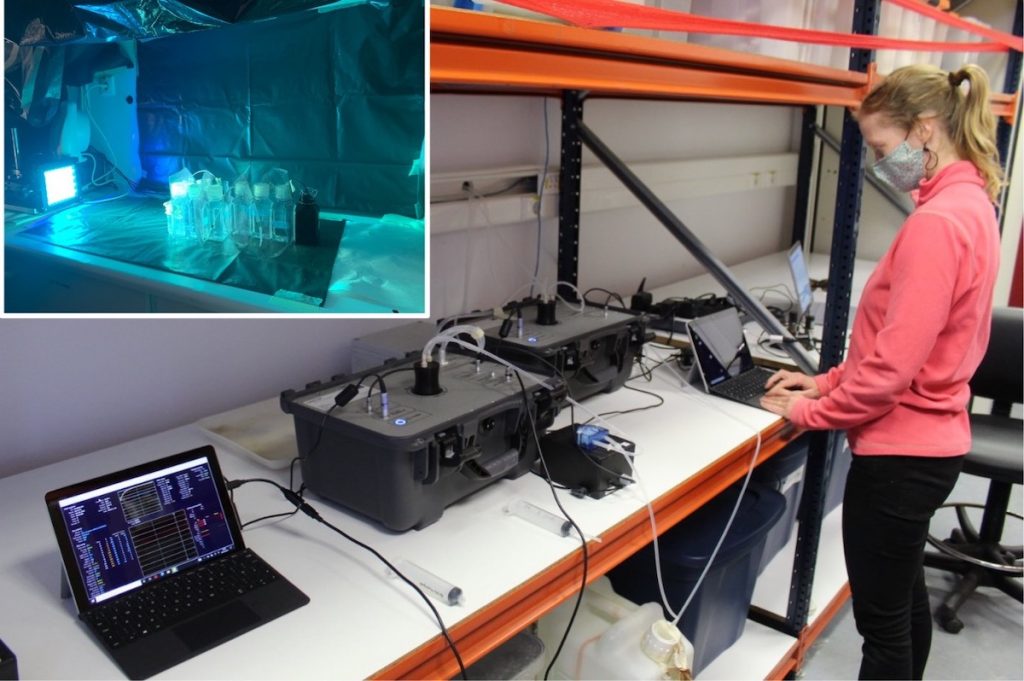The Cretan Sea (CS) is a subpart of the ultra-oligotrophic eastern Mediterranean Sea. In this area, major research challenges include gaining a better understanding of the trends and drivers of pH and the air-sea CO2 flux as well as improving our estimates of net primary productivity (a large part of the primary production being at depths out of satellite reach for most of the year).
The JERICO-S3 Cretan Sea Pilot Supersite (PSS) aims to demonstrate the contribution of a PSS approach to study such challenges via six actions: #1 Solubility and biological pumps; #2 Improved approximations of primary production; #3 Extreme events affecting phytoplankton – AQUACOSM collaboration; #4 Upscale of regional data to a wider area; #5 New sampling strategies, new technologies, best practices; #6 Partnership building.
In late October 2021, a key Transnational Access (TA) activity took place in the Cretan Sea PSS contributing to actions #2, #5, #6. The EuroFluoro TA, applied by Chelsea Technologies Ltd (CTL), was hosted at the HCMR POSEIDON Calibration lab and Plankton ecology lab, and organised jointly with the Cretan Sea PSS partners (HCMR, NIVA, SYKE, CNRS-MIO). It provided tests of a new Single Turnover Active Fluorometry sensor, LabSTAF with two initial aims: a) to test the limits of detection of LabSTAF under oligotrophic conditions, and b) to compare with conventional primary production measurements by 14C-tracer incubations. The ultimate aim is to allow a transition to an easy, non-hazardous, highly automated and non-invasive estimate of phytoplankton primary production.
The first results indicated that the instrument successfully coped even with the lowest primary production levels. Data processing including comparison with 14C measurements is ongoing, after which, in the near future, CTL, together with JERICO-S3, intend to present them to a wide audience. Finally, both CTL and CS PSS partners expressed their interest to take a step further in STAF sensor tests in May 2022, when a mesocosm experiment of AQUACOSM-plus will take place at the HCMR mesocosm facility CretaCosmos, in collaboration with JERICO-S3.

About the JERICO-S3 Pilot Supersites
JERICO-S3 will provide regionalised innovative monitoring and science strategies at 4 Pilot Supersites in The Gulf of Finland, the North-western Mediterranean, The North Sea and the English Channel and the Cretan Sea.
The Pilot Supersites (PSSs) will be established and tested during a short implementation period (January 2021 to August 2022) to demonstrate how transnationally and trans-institutionally integrated multidisciplinary and multiplatform observations add value to our ability to answer the multiple key scientific and social challenges that the coastal ocean is facing.
